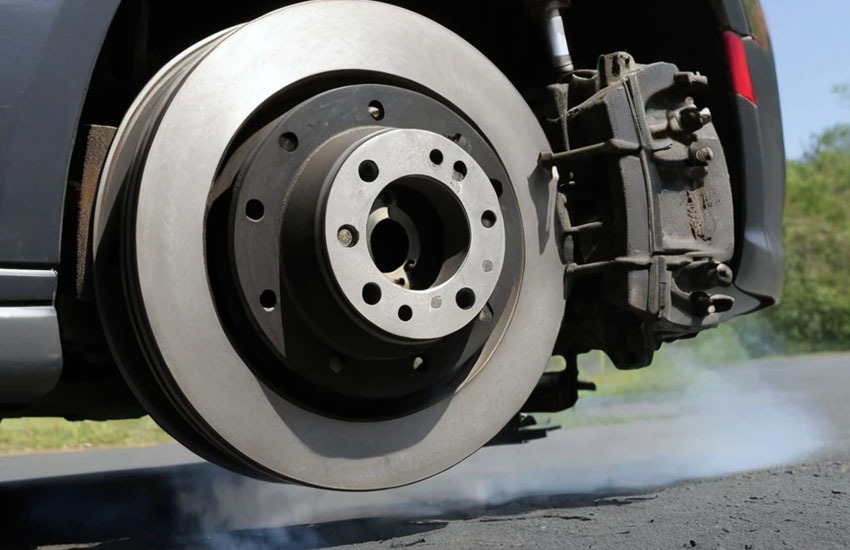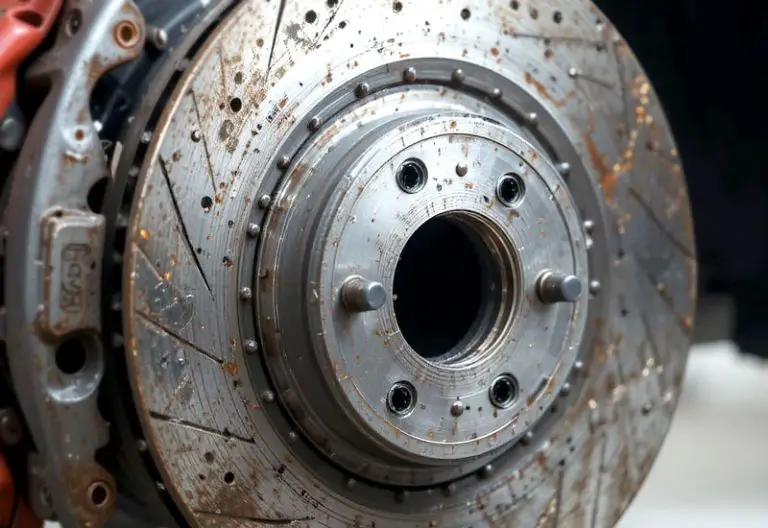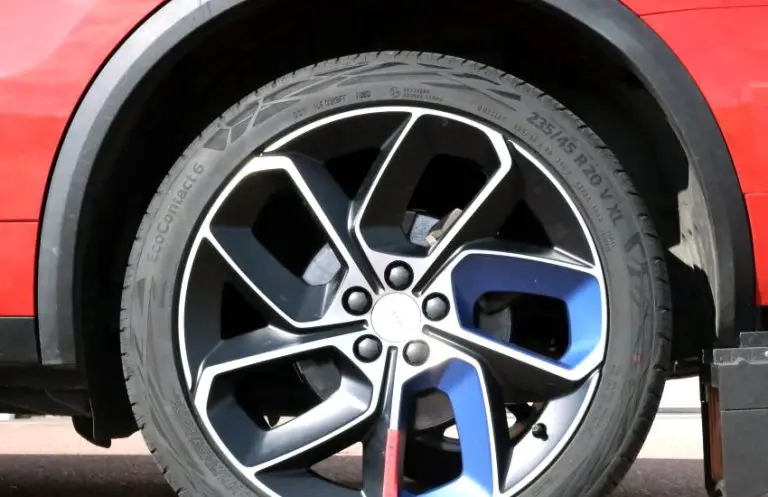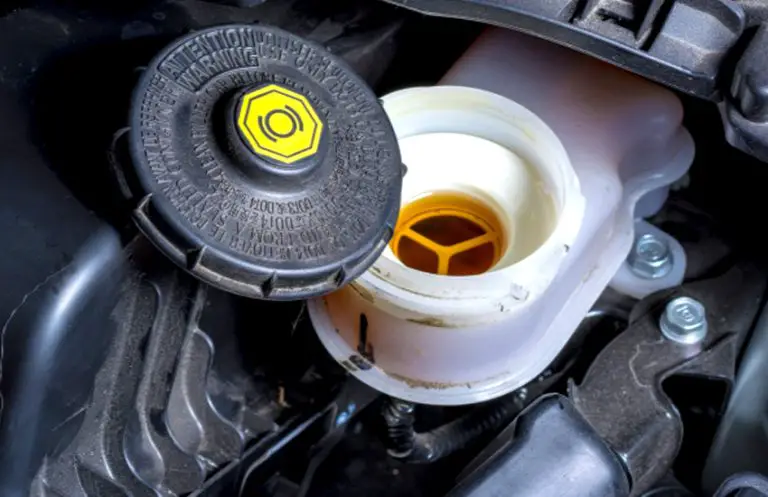When you press the brake pedal in your car, do you ever wonder what happens to the brake drums? The brakes are one of the most critical safety features of any vehicle, and understanding how they work can help you ensure they are in good condition. Many drivers notice that the brake drums can become hot during use, but what does this really mean? Is it normal? Could it be a sign of a problem? In this blog post, we will explore the phenomenon of brake drums heating up during use. We’ll dive into how brakes function, why they generate heat, and what you should look out for to ensure your brakes remain safe and effective.
How Do Brake Drums Work?
To understand why brake drums become hot, we first need to look at how they work. Brake drums are part of a drum brake system, which is one of the two main types of braking systems used in vehicles. The other type is disc brakes. In drum brakes, a hollow cylinder—known as the brake drum—rotates along with the wheel. Inside the drum, there are brake shoes that press against the inner surface of the drum when you apply the brakes.
The Components of Drum Brakes
A drum brake system consists of several key components:
- Brake Drum: The round cylinder that rotates with the wheel. It is made of cast iron or aluminum and provides a surface for the brake shoes to press against.
- Brake Shoes: These are curved pieces of metal that have friction material on them. When the brakes are applied, the brake shoes are pushed outward against the inside of the drum, creating friction that slows down the wheel.
- Wheel Cylinder: This component is a hydraulic device that pushes the brake shoes outward. When you press the brake pedal, brake fluid travels through the brake lines to the wheel cylinder, causing it to expand and push the shoes against the drum.
- Return Springs: After you release the brake pedal, these springs pull the brake shoes back to their original position, away from the drum. This allows the wheel to turn freely again.
The Process of Braking
When you press the brake pedal, the force from your foot is transferred through the brake system to the wheel cylinder. The wheel cylinder pushes the brake shoes against the inner surface of the brake drum. This contact generates friction, which slows down the rotation of the drum and, consequently, the wheel. The friction between the brake shoes and the drum is what brings your vehicle to a stop.
Now, friction is a natural phenomenon that produces heat. The more pressure and surface area in contact, the more heat is generated. This is where things get interesting—heat is a normal byproduct of the braking process.
Why Do Brake Drums Get Hot?
It’s entirely normal for brake drums to heat up during use. In fact, the process of generating heat is essential for effective braking. When you apply the brakes, the energy from the motion of the car is converted into heat energy. However, understanding why this happens can help you grasp how braking systems function and when there might be a cause for concern.
The Role of Friction
The primary reason brake drums get hot is due to friction. When the brake shoes press against the drum, they create a significant amount of friction, which converts kinetic energy (the energy of motion) into thermal energy (heat). This process can cause the temperature of the brake drums to rise dramatically.
In normal driving conditions, the brake drums can get quite hot, especially during heavy braking situations, like when you’re going down a steep hill or coming to a sudden stop. If you think about it, the more weight and speed your vehicle has, the more force will be needed to slow it down, and thus, the more friction (and heat) will be generated.
The Heat Dissipation Process
Fortunately, brake drums are designed to handle this heat. They are made from materials that can withstand high temperatures. However, there is a limit to how much heat they can dissipate. When you drive, the airflow around the wheels helps cool the drums. In addition, brake drums are often designed with certain features, like ventilation, to help disperse heat more effectively.
Under normal driving conditions, the heat produced by the brakes should dissipate relatively quickly, allowing the brakes to cool down when not in use. If you take a break after driving for a while, you’ll likely find that the drums have cooled down significantly, which is a good sign that everything is functioning as it should.
Potential Problems with Excessive Heat
While some heat is normal, excessive heat can lead to problems. When brake drums overheat, it can cause several issues, including:
- Brake Fade: This is when the brakes lose their effectiveness due to high temperatures. The friction material on the brake shoes can become less effective at gripping the drum, which can lead to longer stopping distances.
- Warping: If the drums become too hot, they can warp or deform. This can cause uneven braking and may require costly repairs.
- Premature Wear: Overheating can also lead to premature wear of the brake shoes and other components, leading to more frequent replacements and repairs.
In summary, while it’s perfectly normal for brake drums to get hot, there is a threshold that should not be exceeded. Understanding this can help you maintain your braking system effectively.

Signs of Overheating Brake Drums
As a driver, it’s crucial to be aware of the signs that your brake drums might be overheating. Recognizing these symptoms early can help you address any potential issues before they lead to more significant problems.
1. Burning Smell
One of the first signs that your brake drums are overheating is a distinct burning smell. This odor is often described as similar to burnt rubber or hot metal. If you notice this smell after using your brakes, especially after heavy braking or a long descent, it may indicate that the drums are becoming too hot.
2. Brake Performance Issues
Another telltale sign is a noticeable change in brake performance. If your brakes feel spongy or less responsive than usual, it could be a sign of brake fade due to overheating. You may also find that it takes longer to stop the vehicle, which can be particularly dangerous in emergency situations.
3. Vibration or Pulsation
If you feel vibrations or a pulsing sensation when you press the brake pedal, this can indicate warped brake drums. Warping can occur when the drums heat unevenly and can lead to uneven braking. This is not only a sign of overheating but also an indication that your braking system may require immediate attention.
4. Visual Inspection
If you are comfortable doing so, you can perform a visual inspection of your brake drums. If you see discoloration, such as a bluish tint, this can be a sign that the drums have experienced excessive heat. You might also notice cracks or other physical damage to the drum itself.
5. Increased Noise
Excessive heat can also lead to increased noise when you apply the brakes. You may hear squeaking, squealing, or grinding noises, which can indicate that the brake shoes are worn out or that the drums themselves have become damaged.
If you experience any of these symptoms, it is essential to have your braking system inspected by a qualified mechanic. Ignoring these signs can lead to more severe issues, potentially putting you and others at risk.
Maintaining Brake Drums for Optimal Performance
To ensure that your brake drums remain in good condition and do not overheat, regular maintenance is key. Here are some tips to help you maintain your braking system effectively:
1. Regular Inspections
It’s essential to have your brakes inspected regularly, typically every 10,000 to 15,000 miles, or as recommended by your vehicle’s manufacturer. During these inspections, a mechanic will check the condition of the brake drums, shoes, and other components to ensure they are functioning correctly.
2. Brake Fluid Maintenance
The brake fluid in your vehicle is crucial for the operation of the braking system. It’s important to check the brake fluid level regularly and replace it according to your vehicle’s maintenance schedule. Old or contaminated brake fluid can lead to brake performance issues and increase the risk of overheating.
3. Driving Habits
How you drive can significantly impact the performance and lifespan of your brake drums. To avoid overheating, try to avoid sudden stops and hard braking whenever possible. If you’re driving downhill, use engine braking (downshifting) to help slow the vehicle instead of relying solely on the brakes.
4. Choose Quality Replacement Parts
If you need to replace any components of your braking system, such as brake shoes or drums, be sure to choose high-quality parts. Cheaper, lower-quality parts may not withstand heat as well, leading to more rapid wear and potential overheating.
5. Pay Attention to Changes
Always be attentive to any changes in your vehicle’s braking performance. If you notice anything unusual, such as strange noises, smells, or a decrease in effectiveness, get your brakes checked promptly. Early detection can help prevent more serious issues down the line.
I hope this blog post has shed light on the important topic of brake drum temperatures and what it means for your vehicle’s safety. Understanding how brake drums work, why they heat up, and how to maintain them is essential for any driver. By staying informed and proactive, you can help ensure that your braking system remains in top condition.
Are These Questions in Your Mind?
Is it normal for brake drums to get hot?
Yes, it is completely normal for brake drums to heat up during use due to the friction created when the brake shoes press against the drum.
Can brake drums get too hot?
Yes, while some heat is expected, excessive heat can lead to issues like brake fade, warping, and premature wear.
Do I need to worry if my brake drums smell burnt?
Yes, a burning smell after using your brakes may indicate overheating, and you should have your braking system inspected.
Is it safe to drive with hot brake drums?
If the brake drums are only slightly warm, it’s generally safe, but if they show signs of excessive heat or performance issues, it’s best to have them checked.
Can I prevent my brake drums from overheating?
Yes, regular maintenance, good driving habits, and timely inspections can help prevent overheating.
Is it normal for brake drums to make noise?
Some noise is normal, but loud squeaking or grinding can indicate a problem, such as worn brake shoes or damaged drums.
Do I need to replace my brake drums regularly?
Brake drums should be inspected regularly, and if they show signs of wear or damage, they should be replaced.
Can driving downhill cause my brake drums to overheat?
Yes, driving downhill and relying heavily on the brakes can lead to overheating. It’s better to use engine braking when possible.
Is it true that heavier vehicles have hotter brake drums?
Yes, heavier vehicles exert more force on the braking system, which can generate more heat in the brake drums.
Can I check the temperature of my brake drums?
While you can’t measure the temperature directly without special equipment, you can check for heat by carefully touching the surface after braking (be cautious as it may be very hot).


